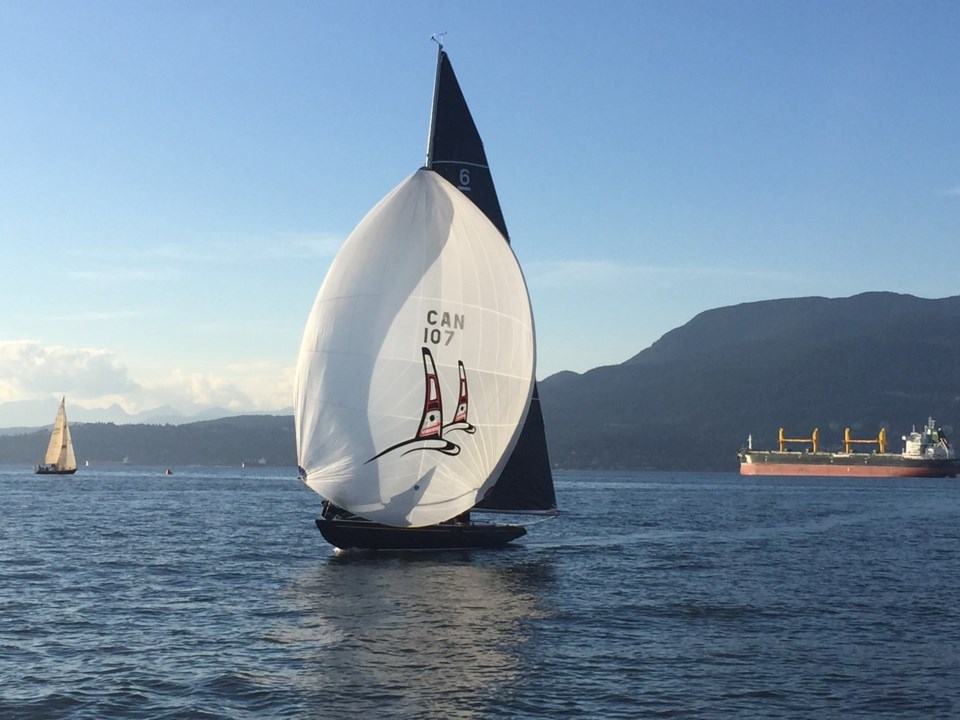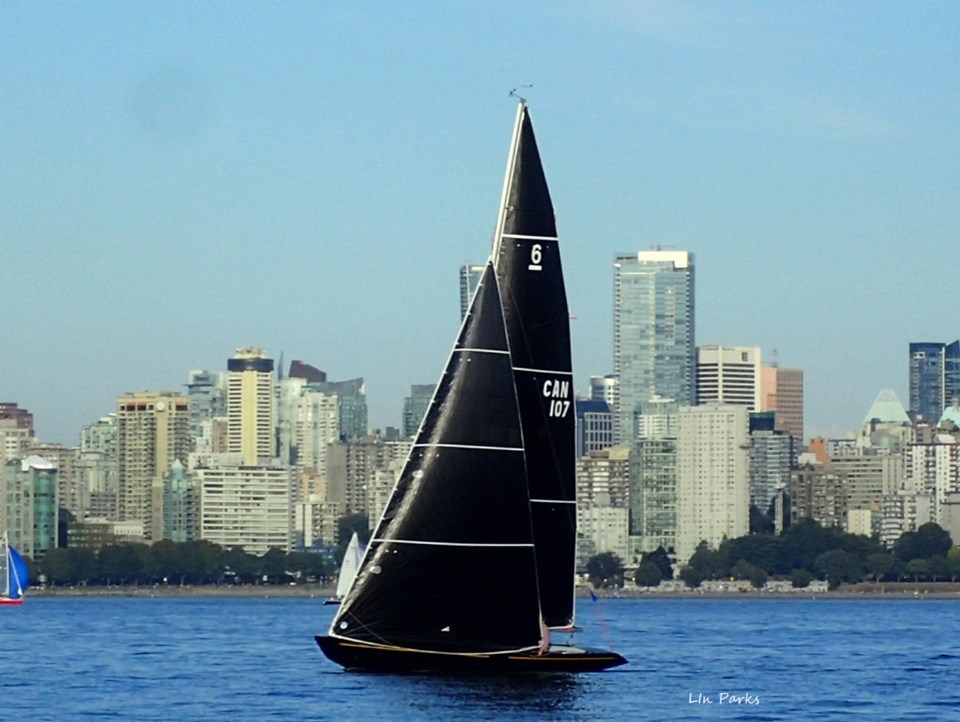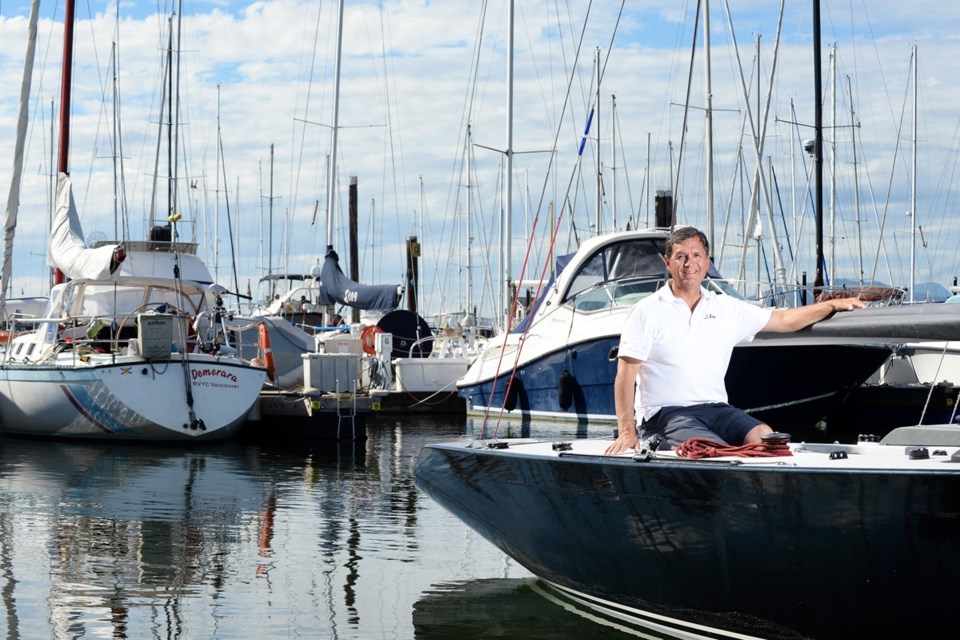North Vancouver’s Peter Wealick doesn’t come from a long line of sailors, he isn’t following his wind-whipped ancestors into the sea to conquer the waves.
In fact his interest in boats comes from a much less romantic place.
“I went to a boat show,” he says with a laugh. “I saw all the pretty sailboats and I thought, ‘that’s something I want to do.’ So that’s what I did.”
That was 40 years ago, and Wealick, now 63, has been racing ever since. In September he’ll have a chance to test his skills against many of the best sailors in the world – including America’s Cup legend Dennis Conner and King Juan Carlos I of Spain – at home in the International 6 Metre Class World Championship hosted by the Royal Vancouver Yacht Club in English Bay.
Wealick, however, is a real trailblazer in the sport of sailing. According to race organizers, he is the first ever First Nations sailor to compete in the 6 Metre Class World Championship. He’ll technically be tied for first, as his daughter Alea will be part of his five-person crew for the races.

Wealick’s parents are both of First Nations descent. His father is from the Sto:Lo territory and is a member of Tzeachten First Nation, located in Sardis, B.C. His mother is from the Kwakwaka’wakw territory and is a member of Wei Wai Kum First Nation, located in Campbell River, B.C. She comes from the Five Fin Killer Whale Clan, which inspired Wealick to rename his boat Max’inux, which means killer whale in the language of Kwak’wala. Wealick is also a former artist and carver, and he’s designed a killer whale logo to display on his spinnaker for the race.
“I think it’s great exposure for the First Nations people,” says Wealick.
The boat that he’ll be sailing at the world championships was built in the 1980s for Europe’s famous Rothschild family. Wealick got his hands on it a year and a half ago, changed the name and went to work getting it ready to race.
“We refit it, we cut the deck open in a couple of different spots, took the floor out of it and then raised the floor up so it wasn’t so deep, and then redesigned all the cockpit layout so it’s a bit more ergonomic.”
The Max’inux is now ready to rip in a race that is known as a true test of sailing. The 6 Metre Class is an old designation that has seen a resurgence in recent years. It’s used by sailors around the world, giving racers a level playing field when they come to an event like the World Championships which are held every two years.
“Some of the people that are sailing are the best sailors in the world,” says Wealick. “It should be more about the people’s skill and how the crew works. It eliminates whether you’ve got the best gadget out there.”
Since taking up sailing in his 20s, Wealick has raced nearly all over the map, including the St. Lawrence Seaway, Switzerland, Florida, the California Coast and two ocean crossings in the Victoria to Maui yacht race. It was on one of those trips to Hawaii in a 48-foot sailboat that he got caught in a tropical storm.
“Three days out of Hawaii it blew 60 miles an hour and there were 50-foot seas,” he says. “You end up going into survival mode. … Being out in that kind of condition when it’s rainy and it’s windy really wears you out quickly. You shorten all your sails up and you tie everything down and just do a lot of preparation work so that nothing breaks.”
Tropical storms aside, Wealick says there’s nothing quite like slipping into the ocean and leaving the world behind.
“You get out on the water and all the stuff you think about when you’re at work, the work you need to do in your house, cutting the grass – it all just disappears when you go sailing,” he says.

Wealick, however, won’t be on a pleasure cruise when the world comes to Vancouver for the world championship Sept. 15-21. It’s the first time the event has been held in Canada, and Wealick and his crew – which includes Alea along with Elizabeth Dier, Cameron Walker, Dennis LeFeaux and spare Carissa Block – will be aiming for a top-five finish in their fleet which will likely contain around 25 boats.
“People that are coming here to race are the top sailors in the world, so we need to move our game up so that we can compete on equal ground with them,” he says, adding that he’s counting on his local knowledge to help him race to the front of the pack. “Definitely the local people have an advantage. It’s mostly wind conditions, wave conditions – where they might expect a shift in certain types of conditions.”
No matter where his crew finishes, Wealick, who lives in Deep Cove and runs a business in West Vancouver, will be making a little bit of history just by lining up at the start line. He’s hoping he might inspire more First Nations people to give sailing a try.
“There aren’t many First Nations sailors – the only ones I know are in my family,” he says with a laugh. “Maybe there should be more.”



